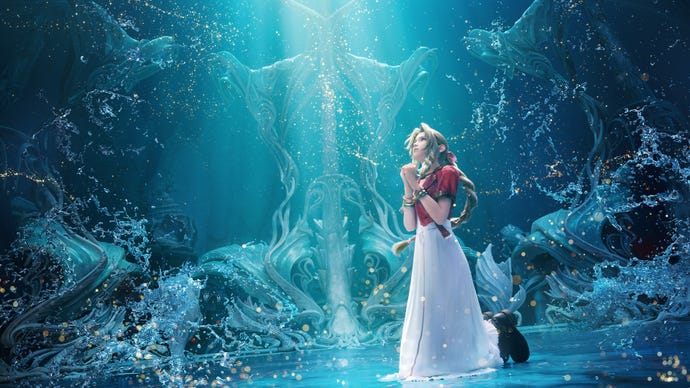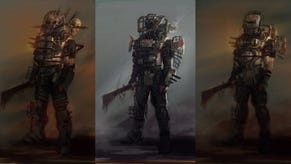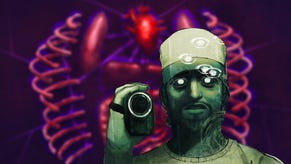Final Fantasy 7 Rebirth's ending was never going to please everyone, and that's fine
Sometimes some things aren't meant for everyone.
Ever since Final Fantasy 7 Remake came out, and it became clear that the project was less of a beat-for-beat remake and more of a reimagining/ pseudo-sequel, there's been one question on everyone's mind, about a particularly important moment from the original: will they dress up Red XIII in a Shinra uniform still? Sorry, what's that - the big thing everyone was wondering about was whether Aerith would die or not? Yeah, sure, I guess I was wondering that too.
Alright, fine, jokes aside, this was obviously the thing I was most curious about too (outside of just seeing how the rest of the game would be realised with modern day capabilities). Of course I wanted to know! Aerith's death is the Darth Vader of video game spoilers, everyone knows about it just through cultural osmosis, even if they haven't even seen a lick of gameplay.
The original scene is easily still one of the most impactful in gaming, primarily because it's so shocking. Aerith is positioned as this all-important figure, someone who could lead humanity towards paradise, and as the last of her people, the Cetra, there's no one left to carry on their culture. It's an upsetting moment, and has stuck with so many players for almost 30 years, so of course with Final Fantasy 7 Rebirth making it clear that the game would end at the scene where she dies originally, she kind of became a Schrödinger's cat situation - both alive and dead until proven otherwise.
Those of you that have played Rebirth know exactly the status of that cat, but I won't get into spoilers today, because the ending itself is slightly irrelevant to the point I want to make - that point being the fact that Final Fantasy 7 Rebirth's ending was never going to please everyone, and I think that's fine, honestly.
I personally found a lot of worth and meaning in the route Rebirth decided to go in (maybe a piece for another day), but I can just as easily understand why it wouldn't land for others, for a broad range of reasons. But really, as I hopefully clearly outlined above, an ending so widely known as being one of the most devastating scenes across gaming just couldn't satisfy everyone under the sun.
There's even perhaps some worth in sitting in your unhappy feelings about what the game ended up doing. You could look at what the original game elicits out of you, and focus on why that is so important to you, contrasting what doesn't work for you in Rebirth. In turn, you can do the same if it did work for you, and maybe how you might prefer it to the PS1's low-poly presentation.
It's ok that Rebirth might not be for everyone because I think that makes for more interesting discussions surrounding it. Universal praise is frequently boring, and I think a big problem that happens with a lot of AAA games (though is something I think we're starting to see change with empty, slightly lifeless games like Starfield not being as well received as many might have guessed). But with a game like Final Fantasy 7, arguably the Final Fantasy people think of when you utter the series' name, having a game that has friction, narratively or gameplay-wise, feels like a rare treat.
Ultimately, a piece of media not being widely regarded as perfect is a good thing at best, and simply fine at worst. To be slightly mean about it potentially, there's also just more important things to worry about than people not agreeing with you on whether a game's ending is good or not. But, of course, there's still one more game to come out, so who knows - maybe that one should try to please everyone, even though it too won't.

.jpg?width=70&height=70&fit=crop&quality=60&format=png&auto=webp)


.jpg?width=291&height=164&fit=crop&quality=80&format=jpg&auto=webp)





